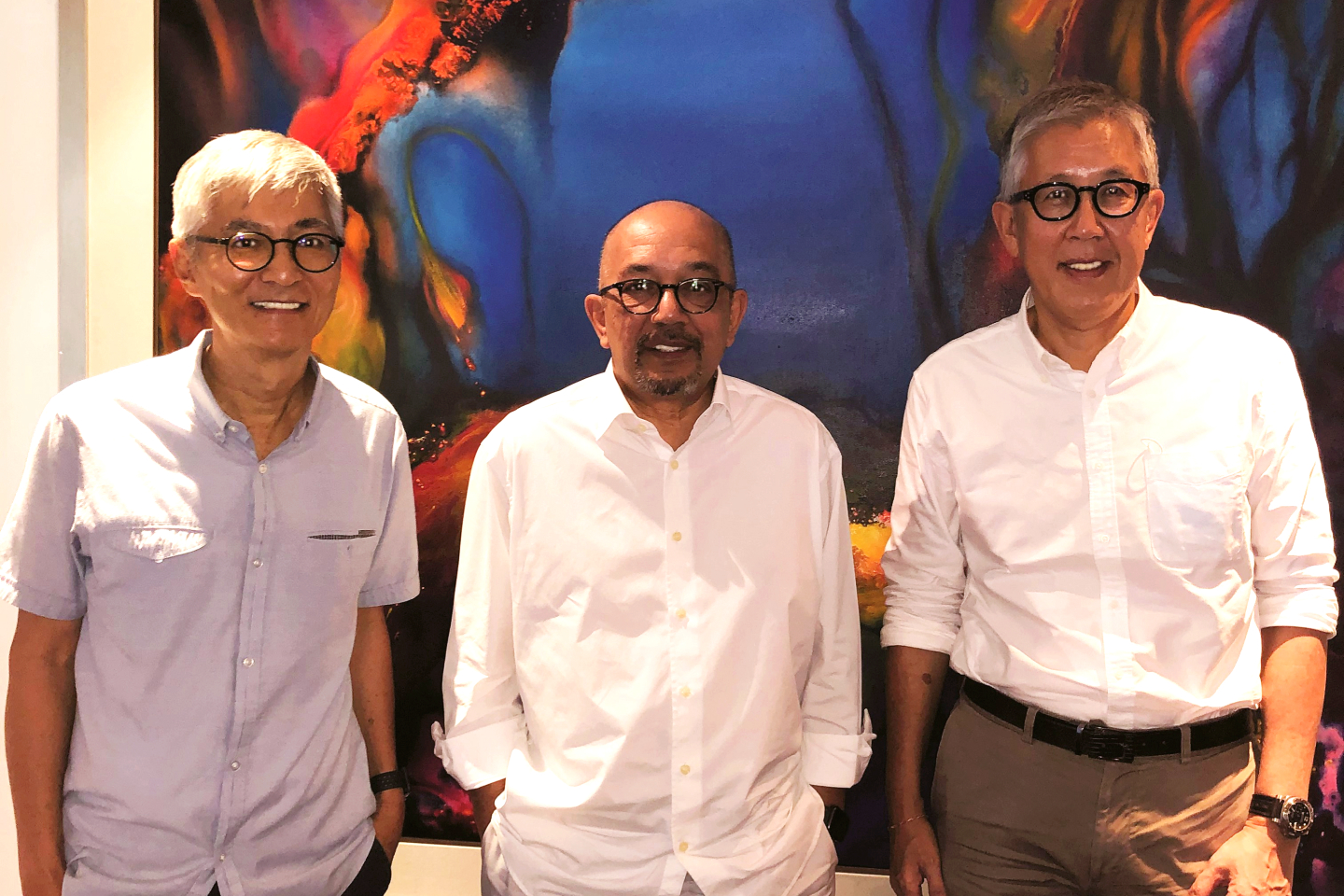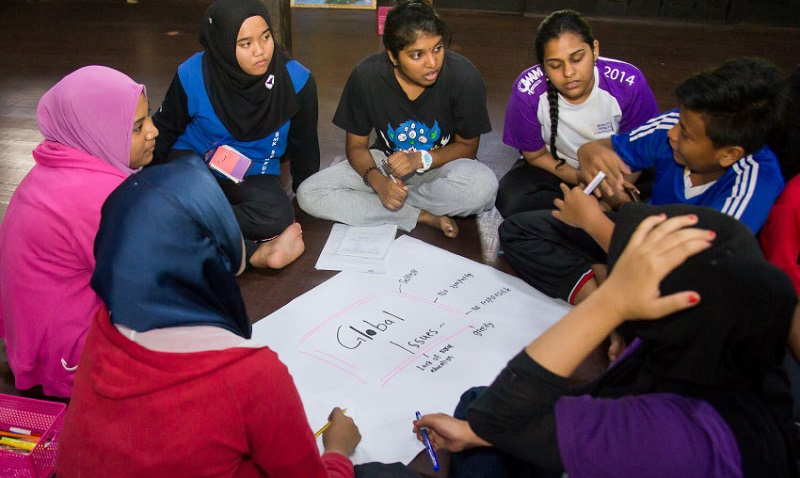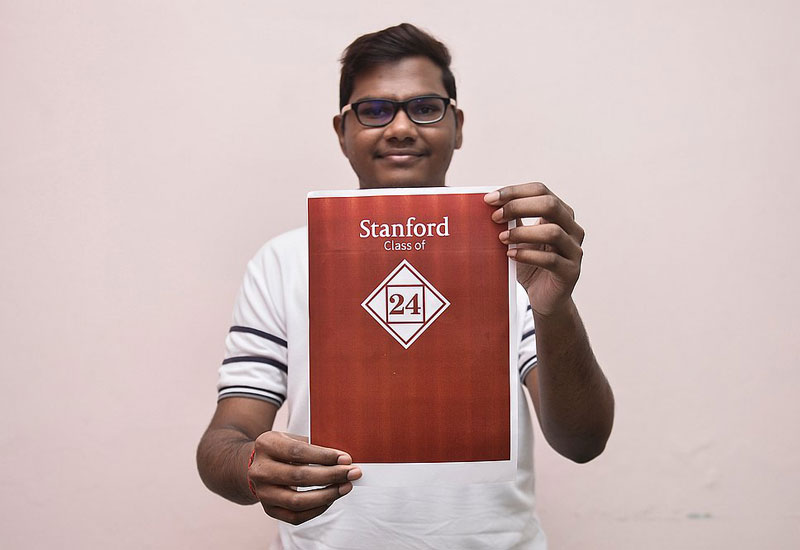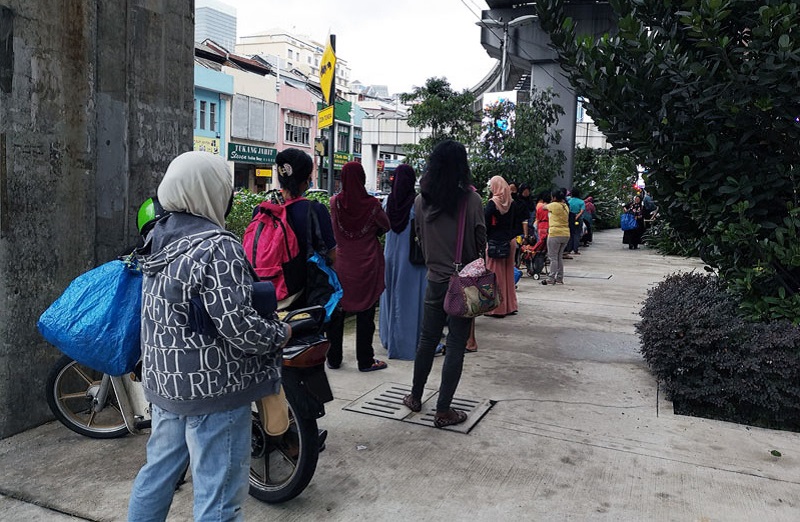
ECM Libra Foundation trustees Lim Beng Choon, Kalimullah and Kian Onn (All photos: ECM Libra Foundation)
When I first spoke to Datuk Lim Kian Onn and Datuk Seri Kalimullah Hassan in 2014 on the occasion of ECM Libra Foundation’s 10th anniversary, they were very candid about why the focus would always be on education — they were once dangerously close to going without it themselves.
A particular anecdote from that interview stands out six years later. “I was in Form Two,” Kalimullah shared. “We had to pay school fees of RM7.50 and my teacher told the whole class that he couldn’t close his accounts because I was the only one who hadn’t paid my school fees. He told me to get out of the class and not come back till I could pay. So, I went home, borrowed money from my neighbour’s mum so I could get back into class, and continue schooling. That sort of thing impacts you psychologically, you know.”
While the two co-founders of ECM Libra live comfortably now — in fact, Kalimullah has a truly enviable personal art collection housed in their office — they are no strangers to the hard life. Lim, for example, grew up in a wooden house with no electricity in Seremban and, in the aftermath of the May 13 riots, Kalimullah and his family were forced to live in a squatter area in a cemetery in Penang after his father’s business went bust. The foundation was set up in August 2004 with funds that Lim, Kalimullah and Datuk Chua Ming Huat — who has since exited the company and the foundation — amassed personally when ECM Libra went public. Lim Beng Choon, a retired managing partner from Accenture and a former colleague of Lim’s, is one of three remaining active trustees of the foundation.
activity-002.jpg

A starting endowment of RM63 million was unusual, but so were many other aspects of the foundation — this was a private, not a corporate foundation, and all loans were granted without any bond requirements. In fact, applicants’ academic merit wasn’t the only yardstick, it was valued as much as drive and desire — the three founders knew from personal experience that difficult circumstances do not often result in high grades. At present, the payback rate is 99%: There have been no defaulters, and the funds for the loans remain intact.
The foundation has produced significant results over the years, with scholars being accepted into top universities such as Stanford, Imperial College, UCL, Durham and King’s College. In its 16 years, the foundation has provided more than RM50 million towards student aid, grants, scholarships and donations to educational projects.
Turning up the dial on the work already done in the education support space, Kalimullah and Lim have expanded the foundation’s reach to provide scholarships to young people across Asean this year, providing deserving youth with the chance to access high-quality education in their desired fields. RM15 million has been allocated for 20 full and 30 partial scholarships to students from Year 7 to A-Levels or equivalent onwards to attend Epsom College in Malaysia (ECiM), the only international campus of the prestigious Epsom College in the UK. The scholarships, open to low- and middle-income communities, will cover school and boarding fees as well as six return flights a year to and from Kuala Lumpur. The initiative will be the first Asean-wide scholarship by ECM Libra Foundation aimed at closing the educational gap for the underprivileged in the region.
yugendran-stanford-klang-boy.jpg

Expanding the reach of the foundation has always been in the works, but the impact of the Covid-19 pandemic expedited things a little. “Everyone has taken a hit — in Malaysia and in the region. We’ve all had to make sacrifices, but we believe this should not be at the expense of our future generation’s education, which has led to us expanding our fund to support Asean. Our efforts are to ensure no one is left behind, and we do hope this will open doors to deserving Asean students in the region,” Lim says. “The genesis of this is a scholarship programme we started a few years ago with a few, very bright, poor Malaysians. We’ve had very good results with this, so this year we wanted to expand it.”
The challenge now is securing applications, all of which can be submitted online. Unable to do any vetting on-ground, the team has shifted to a completely online model and work with experienced NGOs to identify potential candidates and rely on the strength of the Epsom team to perfect the selection process.
All the plans man can make Covid-19 has put asunder this year — so although applications are open, once accepted, it is yet to be seen how things pan out. For example, online classes remain an option should borders remain closed when the new academic year begins, Lim says. “We will just have to work around things. You can say this is not the ideal time for this, but I also think it’s necessary now more than ever — we just need to be smart and innovate.”
ecm-libra-foundation-supports-pertiwti-through-a-customised-programme-for-single-mothers-in-chow-kit.jpg

In recent months, the focus of the foundation has shifted slightly in the light of widespread displacement of many communities as a result of the Movement Control Order (MCO). Kalimullah and Lim were quick to assist causes related to the MCO and Covid-19, including donating generously to The Edge’s drive to provide protective gear to our medical frontliners at the peak of the crisis. They also stepped in to serve the immediate needs of families whose sole breadwinners were involved in daily wage jobs, who were going hungry and needed urgent assistance.
“I spoke to Kian Onn, and we agreed that, even if education is in our charter, there is no point for that if people are dead,” Kalimullah says with his trademark frankness. “Food and sustenance was the immediate need, as the urban poor were really suffering. We started assisting NGOs like Pertiwi and Kechara, as the kitchens in our city hotels were underutilised during the MCO, and feeding people was something we could do.”
Earlier this month, the foundation launched an aid programme to help marginalised communities and the urban poor most affected by the Covid-19 pandemic by providing them with food for the next six to 12 months. “We may extend [the period], depending on how things go. Once the moratorium is lifted and SMEs have increased expenditures but not enough income, we expect more job losses. It’s not going to be easy times ahead, so while education is our focus, this will also be ongoing.” Now that state borders are open, the foundation will work with various local NGOs to ensure targeted aid is provided to some of society’s most vulnerable across the country — the Orang Asli, single mothers, refugees, stateless people and migrant workers.
oa.jpg

Our conversation meanders to money matters and how the foundation’s average annual expenditure was still lower than the total spent on the food aid programme, which Kalimullah and Lim are happy about — money benefits no one lying in its coffers; it should be spent for the benefit of the people. “We are getting on … We are both in our 60s already. We want to finish the money in the foundation and wind things up. We want to accelerate the expenditure so the food aid programme and the expansion of the scholarships work out,” Lim says. Their succession plan is that there should not be one, as the idea is to spend all the money and end the foundation’s journey by the time they are 65 — a milestone that Lim arrives at next year, and Kalimullah in 2022.
Grateful in the knowledge that the foundation has been able to assist a diverse range of young people, even for jobs one might consider less marketable than others — the specific example of a Berklee College of Music graduate comes up — both men are ready for the day it all comes to an end. “We started this, so we both know what we want to achieve — but we don’t know what the person taking over will do,” Kalimullah says. “Might as well have the satisfaction of winding this down ourselves.”
Lim adds thoughtfully: “What we are doing is just a drop in the ocean when you look at what is needed today. It’s not something no one else can do.”
He has a point but, conversely, it is important to note that, without the work they have done, the ocean would be bereft of that one drop.
This article first appeared on July 27, 2020 in The Edge Malaysia.


